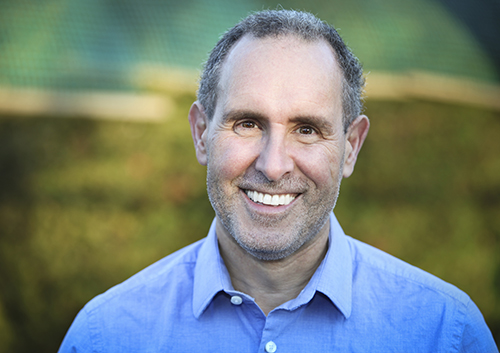Spring Cleaning
May 3rd, 2023

Just like that, it’s almost summertime. As the spring season ends, perhaps these lighter, brighter days are inspiring you to do a bit of last-minute spring cleaning. Or perhaps they’re not. No judgment here!
What we can recommend wholeheartedly is finishing the season with a clean, sparkling smile. And we have some bright ideas for you!
Refresh Your Cleaning Technique
Tooth brushing can become so automatic that we don’t think about the basics anymore. And suddenly, we’ve finished brushing in half the time we used to, and, hey, how long has that floss been sitting on the counter, anyway? We suggest some mindful cleaning for a healthier smile.
- Spend two minutes brushing, at least twice each day.
- Make sure you reach all the surfaces of your teeth, inside, outside, and on top of your molars.
- Use short, gentle brush strokes, covering a tooth or two at a time.
- Angle your brush to clean along the gum line. Plaque around the gums leads to irritation and inflammation, and is a common cause of gum disease.
- Use vertical strokes to clean the inside of your front teeth.
- Floss at least once each day.
Good Cleaning Requires Good Tools
Since we’re tidying up, let’s talk about some helpful cleaning tools. Is your toothbrush looking a bit—long in the tooth?
After three to four months of brushing, your toothbrush bristles start to break down. Frayed and matted bristles can’t clean as effectively as a toothbrush in top shape. Each change of season is a good time to remind yourself to change brushes.
And, while you’re shopping, remember:
- Soft bristles are almost always all any brusher needs. Even medium bristles can be abrasive to tooth enamel. And brush gently—scrubbing is also abrasive.
- If you use an electric toothbrush, those toothbrush heads need to be replaced, too! In fact, because these brushes often have shorter bristles, heads might need to be replaced every two to three months.
- Use fluoride toothpaste to clean and protect your teeth.
- Don’t forget the floss!
If you’re not a fan of your current floss, take another look at the dental aisle in your local store. There are lots of new flossing options out there just waiting to be sampled. If manual flossing is difficult, consider a water flosser. Dr. Welmilya Francis-Davis can help you find just the right floss for your one-of-a-kind smile.
And speaking of your dental team . . .
Some Cleaning Jobs Require Professional Help
Dentists typically recommend a professional cleaning at our Nassau office twice a year to make sure you’re free from built up plaque and tartar. How does your dental team go about getting your teeth cleaner than you can get them at home? With special training and special tools.
- Plaque and tartar need to be removed from tooth enamel above and below the gum line to prevent cavities and gum disease, and tartar can only be removed by a dental professional. Your hygienist might use an ultrasonic scaler, a hand scaler, or both to gently scrape away sticky plaque and hard tartar.
- Teeth are polished with a gentle abrasive to remove surface stains. This can be done with a special toothpaste applied with a small rotating cup, or with an air polisher, which removes stains with a stream of fine abrasive powder, water, and pressurized air.
- An expert flossing will remove any remaining plaque from between the teeth.
Bonus: Your hygienist can point out spots you’ve been missing to help make your home brushing and flossing more effective.
Clean and Bright
Increasing daylight can brighten your mood—and so can a whiter smile! Over time, smiles get dimmer without our even noticing, thanks to tooth-staining foods and drinks, medications, smoking, or thinning enamel as we age. If you’re feeling self-conscious because your smile isn’t its sparkling best, consider a whitening treatment.
- Whitening Toothpastes
Whitening toothpastes use chemicals and mild abrasives to remove surface stains caused by foods, beverages, and smoking. If you’d like to give a whitening toothpaste a try, ask Dr. Welmilya Francis-Davis for suggestions.
- Whitening Strips and Gel Trays
Whitening gels can be applied at home with strips or tray kits. These peroxide-based gels are stronger than the formulas used in toothpaste, but can be irritating. Talk to Dr. Welmilya Francis-Davis to learn how to achieve the best and safest outcome with these products.
- Office Treatment
Whitening treatments at our Nassau office are generally faster, more effective, and last longer because this process uses a more powerful whitening agent. That’s why it should only be applied by a dental professional, who will examine and prepare your teeth, protect the surrounding gum tissue, and monitor your treatment throughout.
Spring’s coming to an end, but taking care of your dental health is always in season! A clean smile isn’t just a more confident smile, it’s a healthier one. Talk to your dentist for more tips to create your best and brightest smile at any time of year.





